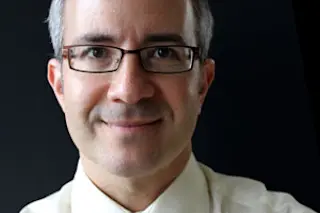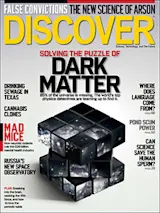To the scientist, proving that an idea is wrong is in many ways more important than proving it is right. In technical terms this process is known as falsification: testing a hypothesis against empirical data and then dismissing it if it fails to match up with reality. In conversational terms, though, it is more commonly expressed as “Can’t you people make up your minds?”
This issue of DISCOVER contains some stark examples of the overturning of old ideas. Linguists generally agreed that human language is a learned behavior, until Noam Chomsky vigorously presented contrary evidence showing that language is innate. Other shifts in thinking have more dramatic impacts. Over the years, arson experts accumulated a seemingly authoritative checklist of the telltale signs that a fire had been deliberately set. Recent experiments in big combustion labs show that many of those checklist items are, to be blunt, dead wrong. Failures of ...















